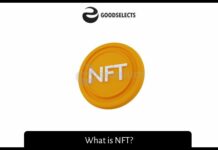When it comes to the world of technology, Blockchain technology and decentralised applications are the latest buzzwords, but what exactly is Web3? Blockchain technology is a technology that uses the concepts of decentralisation and token-based economics to create a new World Wide Web. Blockchain technology is a form of distributed computing and can be used for a variety of different purposes. For more information, read our previous articles about blockchain technology, decentralised applications, permissionless internet, and the Metaverse.
Blockchain technology
In a world where data is no longer owned by any central authority, blockchain holds the potential to revolutionize the digital realm. By replacing trust with tamper-proof and self-enforcing technology, blockchain allows for smart communication among users. The technology has already been proven to be beneficial for voice assistants, such as Alexa and Siri. Now, blockchain is poised to be the foundation of the next generation of the internet.
It is no secret that the Internet is a vital part of human existence. Its importance was highlighted by the recent worldwide pandemic. Yet, the web itself is a mess when it comes to data security. The Web has expanded tremendously since its conception, and there have been many new types of it. But despite all of its benefits, it can be daunting to protect the information we put on it. Blockchain technology in web 3.0 is here to change that.
Decentralized apps
Blockchain technology was originally invented by Satoshi Nakamoto to allow digitally native apps and services. Today, blockchains are enabling many entrepreneurs and developers to build apps based on the technology. Open platforms, such as Ethereum, have made this possible and many are rallying around this new technology. It isn’t yet clear what Web 3 will look like, but it has some interesting features to offer. Let’s take a closer look at the benefits of decentralized applications.
The core of Web 3.0 is decentralization. Developers using web3 software don’t typically build single server or database applications, instead building applications built on blockchains that run on decentralized networks of peer-to-peer nodes. These applications are called “DApps” for a reason: they keep user data out of the hands of companies. These apps are also often based on cryptocurrency, which is a decentralized form of currency.
Permissionless internet
While surfing the internet today is not as private as it once was, the dominance of large service providers on IP addresses, domain names, and the sharing economy is a definite problem. While the Internet started as a vision for an open and permissionless age of information, it has instead evolved into an overwhelmingly centralized closed system where centralized service providers capture value and ignore the consequences. In recent years, new revelations about government surveillance have fueled a renewed interest in privacy and decentralization, and initiatives for a permissionless Internet are gaining momentum.
Blockchains are open by design. Ethereum smart contracts are open by default and have no access restrictions. Blockchains are an example of an open ecosystem. They have never been this widespread and will have profound consequences for platform relationships. As such, they deserve their own classification. But for now, they’re just an idea. As we continue to discover the benefits of blockchain applications, we’ll have to wait for some more time before we can fully appreciate the potential of permissionless computing.
Metaverse
The Metaverse of web 3 will turn the internet into a 3-dimensional space where users can interact with various content. Websites, for example, will be transformed into 3D objects so users can explore the entire web as if it were a physical space. For example, a user could visit an online mall to shop for sports gear, and then interact with other users in a virtual building. They could even share content, interact with other users, and view other people’s avatars.
With more than a million users, the metaverse is poised to become the next major consumer market. The company’s founder, Yat Siu, founded Animoca Brands, which was once a mobile gaming startup. But after facing regulatory pressure and financial problems dealing in cryptocurrencies, he pivots to metaverse investment. Yat Siu has made over 200 investments and is now bolting into the metaverse with Animoca Brands. His metaverse investments will focus on the foundational technologies of cryptocurrencies such as non-fungible tokens. The non-fungible tokens are a way to store value and authenticate ownership on a digital ledger. The trading volume of non-fungible tokens has skyrocketed to $25 billion in 2017, a testament to the potential of this technology.




































